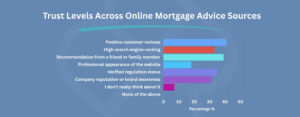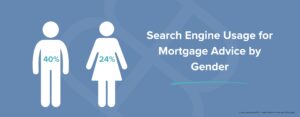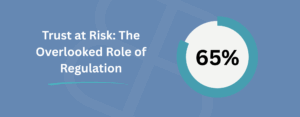The Search Engine Trap: How Consumers Are Misled on Mortgage Advice [June 2025 Study]

New research from Boon Brokers reveals that many consumers trust online mortgage advice without realising how search rankings are shaping their decisions, often leading to unregulated and unreliable sources. Download the full research file in the footer of this article.
Key Findings:
- 81% of respondents use search engines to find mortgage advice or information
- 74% do not always check if the source of mortgage advice is qualified or regulated
- 65% do not consider verified regulation (e.g. FCA registration) a trust factor
- 43% were unaware that SEO – not expertise – drives top search engine rankings
- 41% cited customer reviews as a key factor in trusting online advice
- 40% of men vs 24% of women use search engines for mortgage advice
- 31% reported using top-ranked search engine results as their source of mortgage advice
- Older homeowners are 60% more likely than younger ones to wrongly assume Google’s top-ranked mortgage advice is regulated
Data Summary:
| 1,000 Respondents – TLF Research |
| Homeowners with Mortgages |
| Covers All Age Ranges |
| Covers the North, East, West & South of England |
In the era of the digital-first generation of mortgage seekers, Boon Brokers conducted its own investigation into which sources of information are being used and which are being trusted.
The purpose of this survey was to uncover a better understanding on where UK consumers turn to for mortgage advice, establishing both how they obtain their information, who they trust, and further why that trust might be misplaced.
This study covers all age ranges, providing a holistic overview of the UK’s awareness of online advice sources, trust signals (such as reviews and search ranking), and the degree to which users are actively checking for professional regulation.
The research reveals a clear picture: while convenience dominates and most consumers rely on search engines, few realise it’s SEO strategies – not qualified or regulated advisers – driving what they see. As such, verified regulation is often overlooked, and trust is frequently placed in user reviews and branding rather than qualified professionals.
The Convenience Trap: Why We Search First
While mortgage advice used to start with a phone call to a bank, a chat with an expert, or even a weekend visit to the building society. Today, it starts with a search bar.
Research revealed that 81% of consumers turn to search engines for mortgage advice or information – a stat that clearly demonstrates how convenience is shaping how financial decisions begin.
With the rise of on-the-go technology, most notably smartphones as well as other digital platforms, consumers now have instant access to thousands of articles, forums, and so-called “expert” blogs to digest. Against this backdrop, it’s no surprise that search engines like Google, Bing, and Yahoo have become the go-to source for mortgage advice.
But speed and convenience appears to have come at a cost. This reliance on digital resources is often reactive rather than discerning. Consumers search out of habit, skim for quick answers, and assume that what appears first must be best – or at the very least safe.
In reality: visibility doesn’t always equal credibility.
Most strikingly, the study found 74% of respondents do not always check whether the source of mortgage advice is qualified or regulated – underlining just how easily convenience is replacing caution.
This convenience-first mindset underpins a broader concern: when long-term financial decisions are based on easily accessed information rather than regulated, qualified advice, the financial consequences could be crippling.
Visibility vs. Credibility: The Hidden Influence of SEO
The study found that 43% of respondents were unaware that SEO determines a site’s search ranking. And yet, 1 in 3 say that a source’s position in Google’s top three results directly influenced their trust in its advice.
These statistics alone prove that for most consumers, a high SEO ranking is often mistaken for trustworthy information.
A top search result may feel authoritative, but behind the scenes, visibility is shaped less by information that is provided by a subject-matter expert, and more by algorithms designed to reward optimised content. Unfortunately, the harsh reality is that search algorithms can be manipulated through content tactics designed to boost rankings – not to verify the accuracy or regulation of the advice.
But search rankings are not the only trust shortcut.
Positive customer reviews emerged as the leading driver of trust at 41%, followed closely by personal recommendations from friends or family at 39%. These forms of social proof – while emotionally compelling – offer little indication of whether the advice being followed is regulated or accurate.
SEO, slick branding, and high review ratings (from unknown sources) has become the perfect cocktail to create a strong illusion of credibility. But unlike regulated mortgage advisers, these forums and sources aren’t necessarily held to professional standards – and that’s a vital distinction.
As algorithms evolve in this new era of AI-driven content, online information is increasingly shaped for visibility and engagement — not necessarily for accuracy or truth. With almost half of the study’s respondents (43%) unaware that SEO influences their search results, it’s clear that consumers must look beyond surface-level signals to ensure the advice they follow comes from a qualified, regulated source.
Who We Trust (and Why That Might Be Risky)
While we’ve already highlighted that 41% of consumers place the most trust in positive customer reviews, perhaps more concerning is that the study showed only 35% of respondents consider verified regulation to be a key factor when evaluating mortgage advice.
This gap speaks volumes and calls into question, why?
When your financial future is on the line and the search for the perfect home begins, most consumers aren’t consulting verified experts – the study revealed that consumers are following emotional cues rather than regulated authority.
The power of online marketing today is fuelling a growing mountain of information – but it’s often the regulated, qualified advice that forms the hidden bedrock, buried beneath layers of more visible yet less reliable content.
Specifically among younger consumers, there appears to be a significant difference and separation between trust and reputation. While the research shows that 42.5% of 18–24-year-olds and 36.0% of 25–34-year-olds trust online mortgage advice based on positive reviews, only 15.0% and 17.5% of those same groups, respectively, say that a company’s reputation or brand awareness influenced their trust.
This reveals a critical misconception: reputation, track record, and even regulatory status seem to carry less weight in shaping trust than digital gloss.
For many young consumers and first-time buyers, it’s not the company’s credentials that matter – it’s how convincingly that company appears in search results. In this environment, branding and five-star reviews are the new proxies for credibility, no matter how shallow their experience or unverified the provided information may be.
When one decision can shape your finances for decades, trust can’t be built on popularity alone. It must be grounded in genuine expertise, transparency, and regulatory accountability. While we all appreciate the initial glam and usability of online sources, consumers need to go beyond this to start asking whether the source of advice is approved, regulated, and qualified.
Gerard Boon Managing Director (B.A Hons, CeMAP, CeRER)
Blind Spots and Bias: The Role of Age and Gender
Trust in online mortgage advice is not evenly distributed, with the latest research suggesting that some consumers may be more susceptible than others to misinterpreting credibility.
The data found that 40% of men turn to search engines for mortgage advice, compared to just 24% of women. While this may reflect broader patterns in online engagement, it also suggests that men are more likely to be influenced by online visibility, and as such, are potentially more exposed to unverified or unregulated sources as a result.
Additionally, age also appears to be a defining factor, with older homeowners recorded as 60% more likely than younger ones to wrongly assume that Google’s top-ranked mortgage advice is regulated.
This misconception has serious implications: it implies that those with the most equity at stake may place unearned trust in digital prominence, unaware that search engine rankings are driven more by SEO tactics than by qualifications or regulatory oversight.
These findings reveal a critical vulnerability. When specific groups are more inclined to trust what they see first, the risk of relying on unqualified advice increases. The illusion of authority, reinforced by convenience and familiarity, can quietly undermine financial decision-making on a large scale.
Due Diligence: What Consumers Need to Do Differently
Building on the findings around how consumers establish trust, the research also revealed that 45% of respondents did not report using a regulated mortgage broker or financial adviser when seeking mortgage advice.
On reflection, this stat shows that nearly half of consumers could be relying on unqualified and unaccountable sources of information. By overlooking regulated experts whose guidance is built to help and protect their financial wellbeing, the actions of many consumers today is not unlike asking a stranger for medical advice simply because they’ve left a convincing online review.
When the stakes in question involve long-term health, we wouldn’t accept popularity as a substitute for expertise. Yet when it comes to mortgages – one of life’s most significant financial commitments – many consumers do just that.
While this comparison may first appear hyperbolic, in fact, 74% of respondents admit they don’t always check whether their source of mortgage advice is regulated or qualified. This casual approach to trust exposes the real risk, especially in a digital space designed to be persuasive, not necessarily protective.
While the persuasive content and five-star reviews are seemingly always just a click away, it’s more important than ever for consumers to take the time (extra few clicks) to ensure that they are vetting the advice they rely on.
Rethinking Trust in the Age of Online Advice
The research paints a clear and worrying picture: there is a growing gap between perceived credibility and actual expertise in the digital mortgage space. With nearly half of consumers not using regulated advisers as their source of information – and 65% failing to even consider regulation as a factor in developing trust – the data underpins a worrying trend: trust is being earned through visibility, not verification.
This shift is being accelerated by the rise of SEO-led content strategies, where visibility can be engineered through keyword targeting, backlink tactics, and algorithmic manipulation.
While there is nothing inherently malicious in marketing strategies that centre their value around SEO structure, it’s important for consumers to understand that the highest-ranking advice is not necessarily the most accurate, it’s simply the most optimised.
To safeguard against misinformation, consumers should check whether a broker or firm is authorised by the Financial Conduct Authority (FCA). A quick and simple search can verify if the advice they’re receiving is backed by regulated experts.
As we all live in the environment of the digital age, the responsibility falls on consumers to adopt a more critical lens. Trust should no longer default to whoever shouts the loudest online or types the most, it must be built through accountability and reflect reputable and professional standards.
To navigate this space responsibly, consumers should:
- Verify whether the adviser or firm is regulated by the Financial Conduct Authority (FCA)
- Cross-check advice with multiple and reputable sources
- Question guidance that feels overly generic or persuasive
- Keep a critical awareness around trending buzzwords and viral blogs
The reality? Good advice isn’t always the advice that ranks highest. And trust should not be outsourced to an algorithm.
Notes to the editor
Research was conducted between 17th and 24th June 2025 amongst 1,002 applicants.
About the Researcher:
The Researcher for this article is Gerard Boon (B.A Hons, CeMAP, CeRER). Mr. Boon is the Managing Director of Boon Brokers Limited, a Directly Authorised Online Mortgage, Insurance & Equity Release Brokerage in the U.K. Boon Brokers boasts over 9,000 clients across the country and is quickly scaling year on year. Mr. Boon is passionate about Artificial Intelligence in the industry. During his studies at the University of Leeds in 2018, he achieved a First classification for his dissertation project titled “Artificial Intelligence in Financial Intermediation: An Investigation into the Prospects of Robo-Advice Developments for Independent Mortgage Brokers in the United Kingdom”. Since 2018, AI technology has rapidly developed. Mr. Boon is hoping to update his research on the topic following this survey.
Download the Full Results of The Mortgage Advice Survey June 2025










